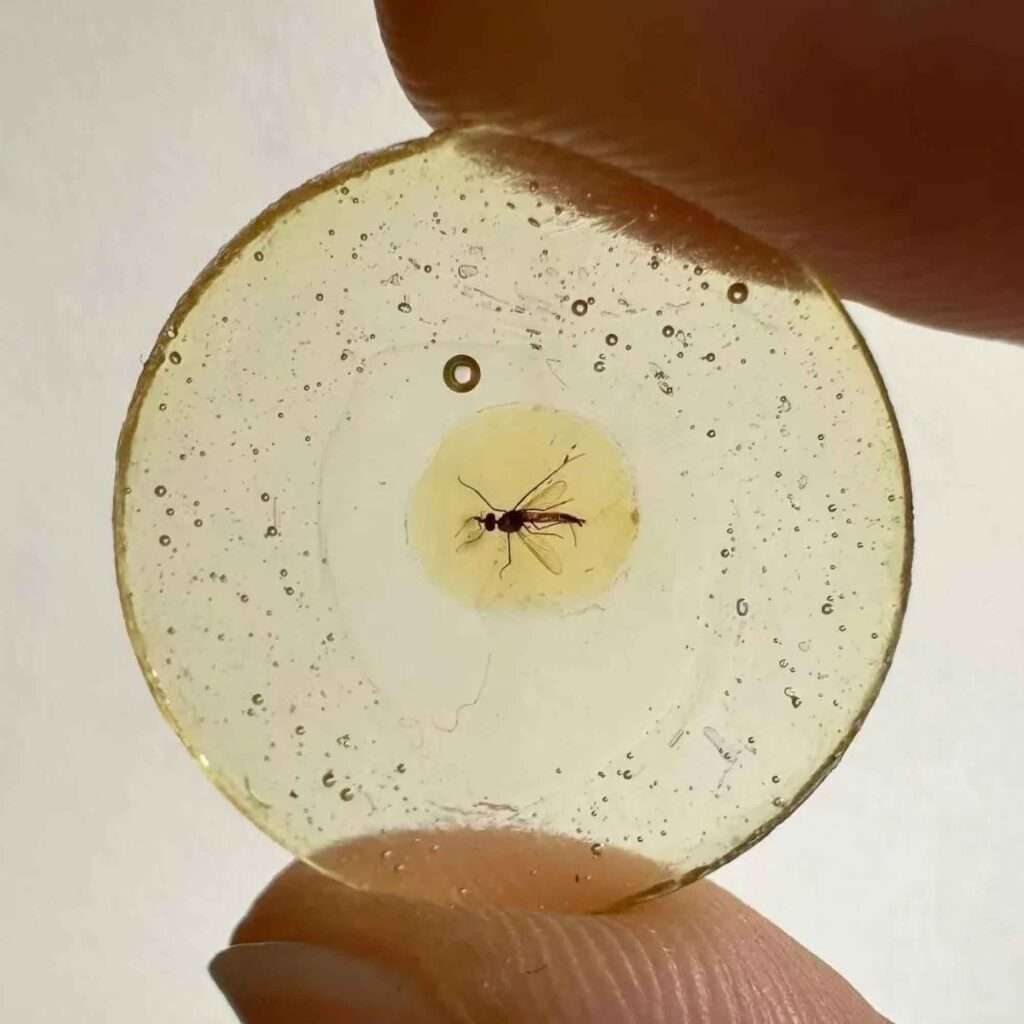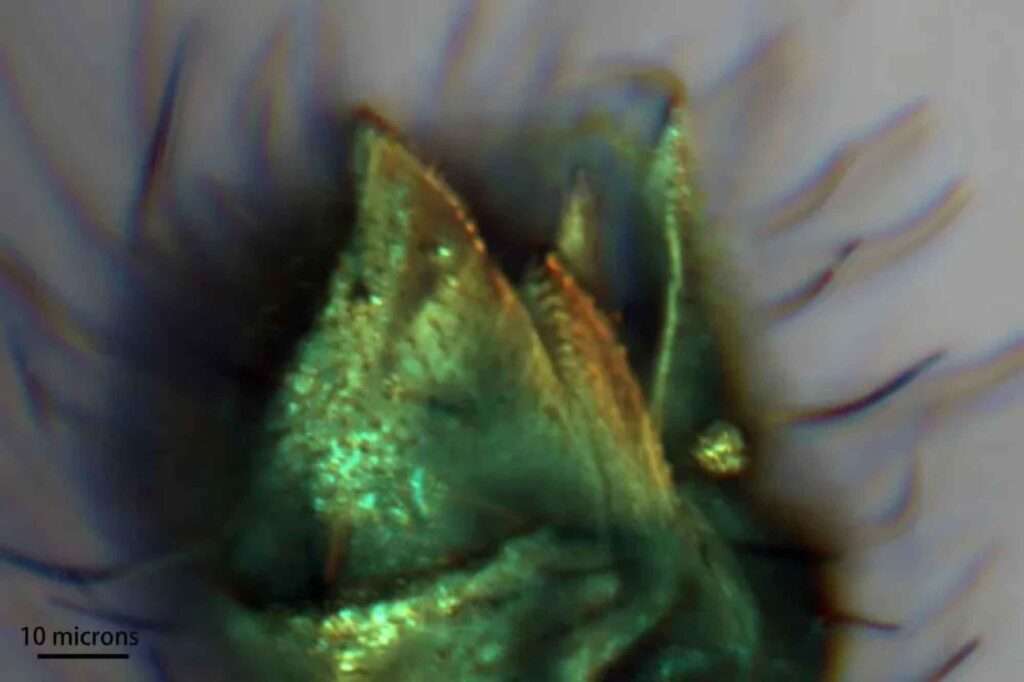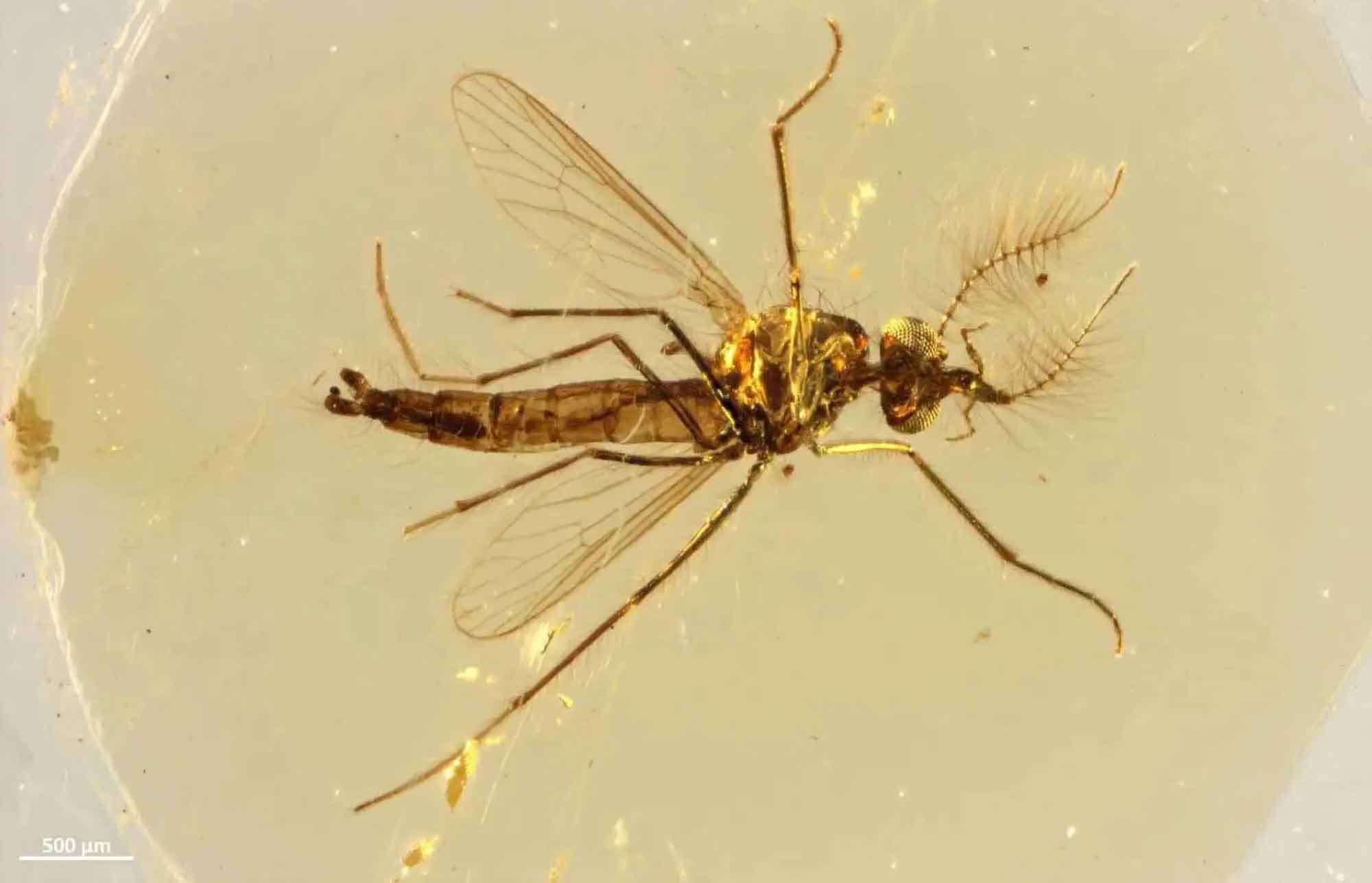A new study led by expert palaeontologists has revealed that male mosquitoes also used to suck blood back when dinosaurs roamed the earth and only later moved to a diet of pollen nectar.
The new discovery flies in the face of the well-known theory that female mosquitoes are the only ones that can feed on blood as they have the mouth parts used to pierce skin.
Females unlike males drink blood as it has the necessary nutritional values to help them produce eggs.
Research led by Lebanese researcher Dany Azar from the Nanjing Institute of Geology and Palaeontology at the Chinese Academy of Sciences that focused on analysing the oldest-known mosquito fossil found in Lebanese amber, dating back approximately 130 million years, revealed the new findings.
The findings come from two pieces of amber that contain well-preserved mosquitoes from the early Cretaceous period.

Researchers, using advanced scientific instruments, carefully observed the two male mosquitoes, which retained distinctive piercing-sucking mouthparts.
Azar stated: “While female mosquitoes today use piercing-sucking mouthparts for blood-feeding. The mouthparts of male mosquitoes only serve to feed on flower nectar.
“Based on the piercing-sucking mouthparts found in male mosquitoes in this discovery. It is speculated that male mosquitoes were also blood-feeding insects around 130 million years ago.”
Experts speculate that during that time, mosquitoes might have fed on the blood of warm-blooded vertebrates such as some dinosaurs and mammals.
As the pollen and nectar were able to provide them with more energy, male mosquitoes likely no longer needed to undertake the “life-threatening” task of “ambushing” these larger animals.
Azar added that the new discovery reveals that the behaviour of insects could be much more complex than previously imagined.

To find out more about the author, editor or agency that supplied this story – please click below.
Story By: Simona Kitanovska, Sub-Editor: Joe Golder, Agency: Asia Wire Report
The Ananova page is created by and dedicated to professional, independent freelance journalists. It is a place for us to showcase our work. When our news is sold to our media partners, we will include the link here.




